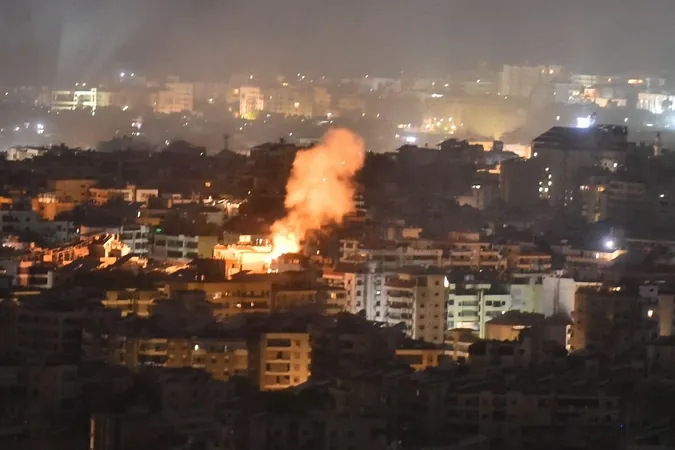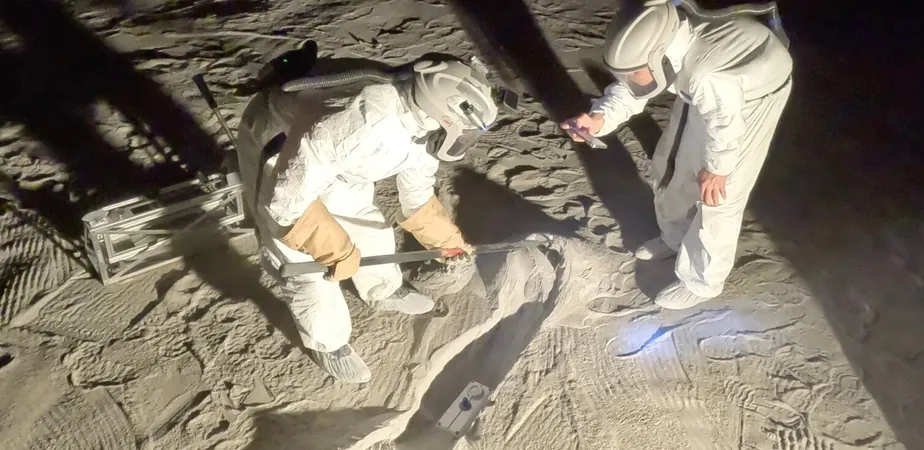
Escalation in Israel-Lebanon Conflict: Air Strikes and Regional Tensions Rise
2024-10-01
BEIRUT
Tensions in the Middle East surged once again on October 1, as Israel launched air strikes in southern Beirut, targeting buildings in a Hezbollah stronghold just hours after Israeli commandos engaged in operations against Hezbollah positions in southern Lebanon.
The air strikes, which hit locations near the Zahraa Hospital and the Kuwaiti embassy, were described by Lebanon’s National News Agency as a 'violent enemy strike.' These attacks followed a series of skirmishes reported along the Israel-Lebanon border, signaling a potentially dangerous new chapter in Israel’s ongoing conflict with Hezbollah, a group backed by Iran.
A senior White House official indicated that Iran might retaliate by launching a ballistic missile at Israel, prompting a solemn warning that such an action would lead to severe repercussions for Tehran. The United States has ramped up defensive measures to protect Israel, highlighting the international dimension of this escalating conflict.
The Israeli military confirmed that operations commenced on the night of September 30, utilizing elite forces from the 98th Airborne Division. Tensions had already begun to boil over, with reports of local clashes and targeted strikes earlier in the weekend. Israel's military announced it was mobilizing additional reserve brigades, indicating preparations for possible further incursions into Lebanon.
Rear-Admiral Daniel Hagari, an Israeli military spokesperson, stated that forces have been actively conducting operations aimed at neutralizing Hezbollah’s capabilities, including the discovery of tunnels and munitions caches. He drew parallels between Hezbollah’s alleged invasion plans and a recent attack by Hamas, which has drawn international scrutiny and concern.
Hezbollah responded to the escalating situation by launching missiles at military positions in the suburbs of Tel Aviv, targeting high-profile locations such as the Israeli Mossad headquarters. This reciprocal exchange of fire is heightening fears of a full-scale conflict engulfing the region.
Industries and civilians alike are sounding alarm bells over a potential large-scale ground invasion. UN representatives have urged restraint due to the severe plight already faced by civilians amid the ongoing hostility. British and Spanish foreign ministers echoed these sentiments, calling for de-escalation to avoid dragging the region further into chaos.
Lebanon finds itself amidst one of its most precarious periods in history, with its Prime Minister, Najib Mikati, appealing for international aid amidst the spiraling violence. More than one million Lebanese have been displaced, with casualty figures rising past 1,100, showcasing the human cost of this relentless conflict.
The stakes are high, as Iran's allies, including Hezbollah and the Houthis, have launched strikes in solidarity with Hamas, which raises the specter of a wider regional war involving external powers such as the United States. Just recently, Yemen's Houthis claimed responsibility for drone strikes against Israeli military positions as part of this coordinated response.
In addition to the ongoing air operations in Lebanon, Israel has intensified its strikes in Syria, particularly targeting locations tied to Iranian military activities. These strikes reportedly resulted in civilian casualties in Damascus, further exacerbating regional tensions.
As the situation continues to develop, the potential for a humanitarian crisis looms large, and the international community watches closely as Israel maneuvers through this complex landscape while facing immediate threats from Iran and its proxies. Dating back over decades, the conflict with Hezbollah shows no signs of resolution, with each side gearing up for what could be a drawn-out and devastating confrontation.
Stay informed as we continue to monitor this escalating situation, which could reshape the geopolitical balance in the region!




 Brasil (PT)
Brasil (PT)
 Canada (EN)
Canada (EN)
 Chile (ES)
Chile (ES)
 España (ES)
España (ES)
 France (FR)
France (FR)
 Hong Kong (EN)
Hong Kong (EN)
 Italia (IT)
Italia (IT)
 日本 (JA)
日本 (JA)
 Magyarország (HU)
Magyarország (HU)
 Norge (NO)
Norge (NO)
 Polska (PL)
Polska (PL)
 Schweiz (DE)
Schweiz (DE)
 Singapore (EN)
Singapore (EN)
 Sverige (SV)
Sverige (SV)
 Suomi (FI)
Suomi (FI)
 Türkiye (TR)
Türkiye (TR)